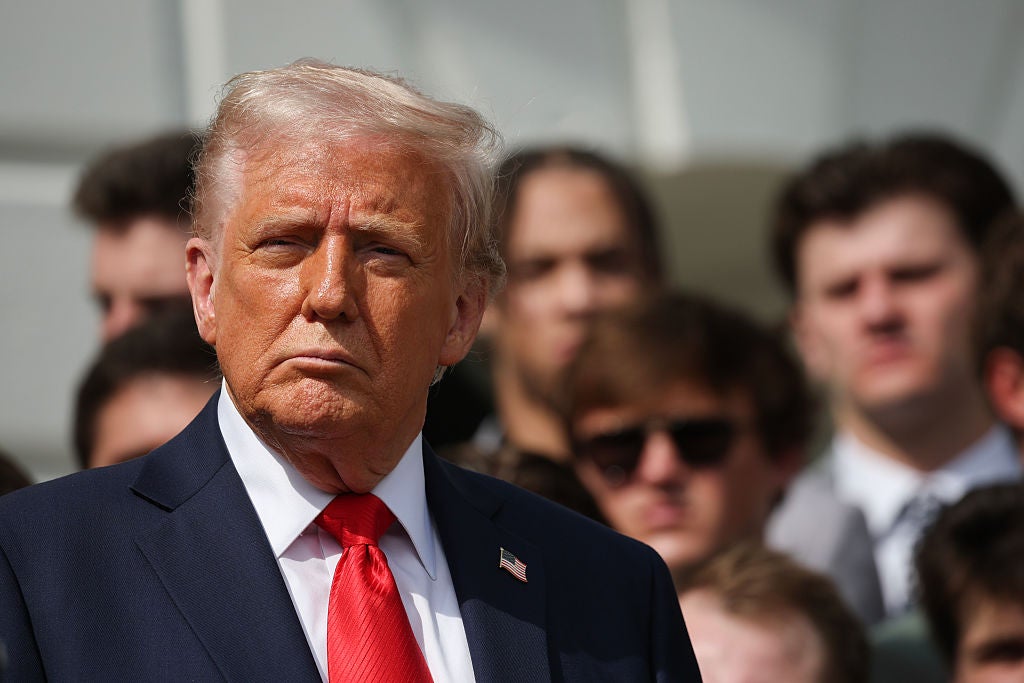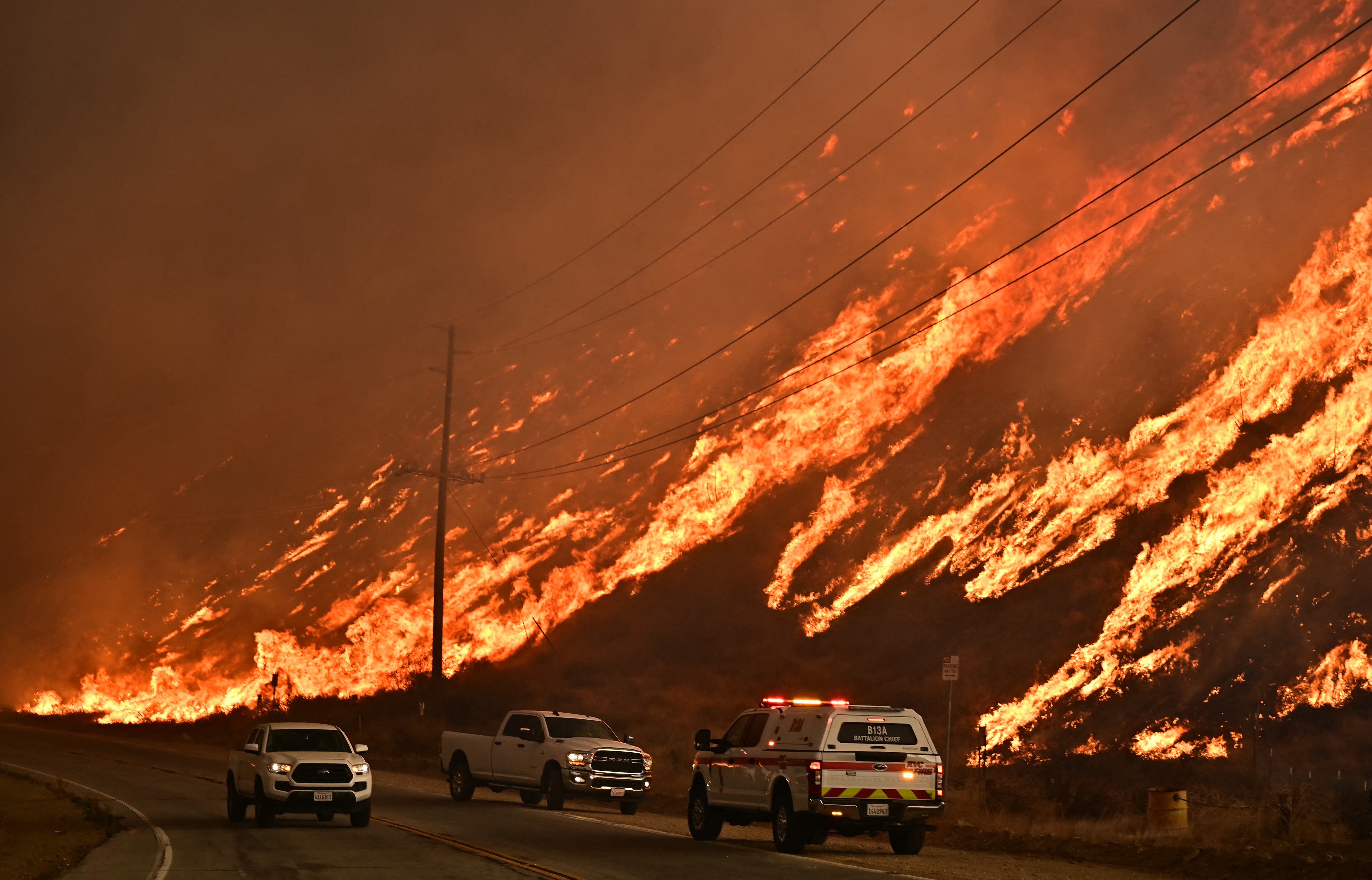The climate crisis truth that Trump’s re-election helped expose
The US president’s delight in telling big business to ‘drill, baby, drill’ shows us how hopeless our response has been to the most pressing crisis of our times, writes Mike Berners-Lee. But there is hope – and action we can all take to make things better

After three decades of climate Cop climate meetings, the carbon emissions curve is still rising year-on-year. In other words, every year we are making the climate worse by a larger amount than we did the year before. The climate Cops have been perverted almost from the beginning by the cynical, well-funded and highly effective action of vested business interests. However you look at it, action on climate change has always been pitiful compared to what the scientists have been saying is needed.
Clutching at straws, many well-intentioned wishful thinkers who say we have been making progress, point to the possibility that the steepness of the curve looks to have been declining. But that was before “drill, baby drill”.
If there is a positive side to Trump’s election, at least now it is clearer to even more people that our climate response has been hopeless. This is a step forward, because the delusion of progress has been part of the problem and in the words of James Baldwin, “Nothing can be changed until it is faced.”
Trump’s election, surely, signifies how broken the system is. It makes clear the need to go deeper underneath the skin of the problem; to understand at a deeper level the reasons behind our failure to implement climate solutions, for which the technology already exists.
When the problem seems so global and intractable, is it reasonable to ask whether any of us can do anything meaningful to help? I think the answer is yes. The first step is to frame our response in a new way. We need to move on from questions like “How can I cut my carbon footprint?”, to the much wider and more empowering question, “How can I help to create the conditions under which the global systemic change that we so urgently need can become possible?” This takes us into a search for our points of maximum leverage.
When I look at bad decisions that have been taken on climate, or good policies that have failed to be enacted, I don’t see poor judgment at their heart, I see flat-out deceit at their roots. This is equally true of the climate Cops, and decisions about new coal mines and drilling licences.
It is clear we can’t get anywhere without raising the standards of honesty in the debate. And this doesn’t just apply to climate. How could we, the people, as citizens, readers, viewers and consumers, have been so careless as to have allowed the simple quality of honesty to have become so undervalued at a time when we can so ill afford the spanner in the works of our decision making that any form of dishonesty provides.
The good news is that we can all do something about it. If each of us pushes hard for higher standards of truth in politics, media and business, we stand a chance of finally getting somewhere on climate, the wider sustainability agenda, plastic pollution, inequality, AI, or in fact, anything else that matters. The results of the post-truth experiment are coming in. It is time not just for a reset, but for a raising of standards beyond any we have known.
So how do we raise standards of honesty, (which means far more than simply not lying), when churning out falsehoods is both so easy and so prevalent? How do we create a climate of truth when spreading misinformation is so simple yet correcting it is so arduous?

The answer is that we need to create an environment in which the price that is paid for being found to have deliberately misled the public – whether through lies, implications, misdirection of attention, bias selection of evidence or any other subtle tool of deceit – is so high that it is not worth the risk of being caught.
We need to create a cultural norm, which says that if we find a clear-cut case of a politician/media mogul/CEO misleading the public, that tells us that they can’t be trusted on anything at all and that they are therefore unfit for the role they are in. It also tells us that we can’t trust any of their colleagues who stay quiet in the knowledge that they have been dishonest.
We need to treat deceit as a form of abuse – and deal with it in the same way. If someone tries to make you think something that they don’t themselves believe, it tells you that they do not have your best interests at heart, and you deserve better. All of us need to ask more carefully who we can trust to be diligent with the truth. If every candidate fails these tests, then it is important to vote for the least unfit because, in doing so, you raise the bar. We need to be discerning of our traditional and social media and challenge those around us who are not.

We need to carefully scrutinise the ownership and track record of every media group. Where possible, we should take care to spend our money on businesses that work with integrity for a better world. With every purchase, we push for one future or another. Our choice of bank may be our single most critical financial choice.
Your vote, your attention and your money are valuable… cast and spend them wisely.
By insisting on a climate of truth, we can enable, for the first time, the quality of decision-making that humanity now has to achieve in order to steer its way through the challenging decades ahead. We will not achieve perfection, but all progress in this direction is gold dust. Whatever aspect of the environment and society you care about most, if you want to have agency, truth is the most critical lever to pull.
Mike Berners-Lee is the author of A Climate of Truth: Why We Need It And How To Get It (CUP, £14.99). He is appearing at the Hay Festival in May as part of the news review line-up in conjunction with The Independent



Join our commenting forum
Join thought-provoking conversations, follow other Independent readers and see their replies
Comments